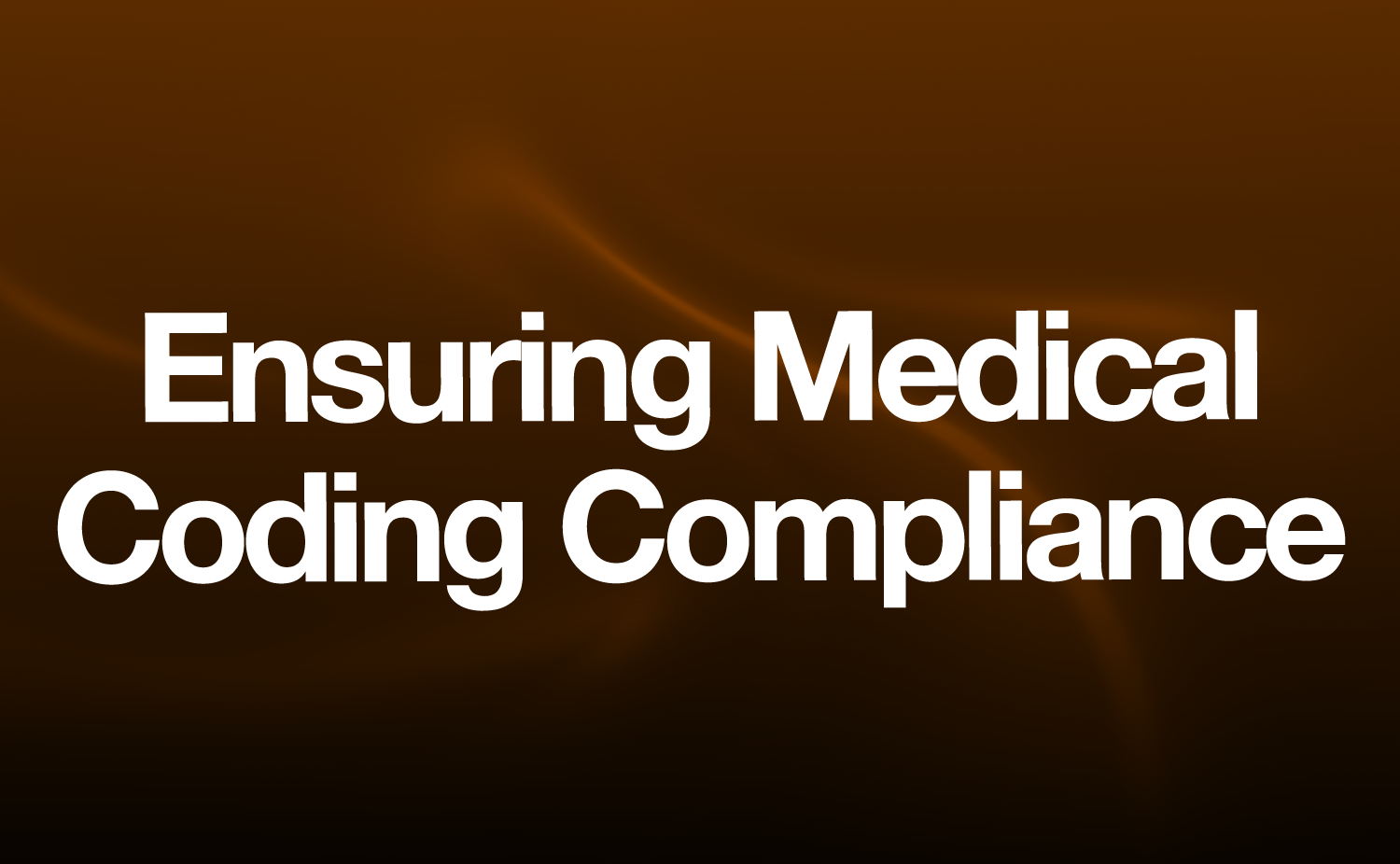
Medical Coding Compliance Program
In the dynamic landscape of healthcare, ensuring meticulous documentation and accurate coding is paramount for providers in Accountable Care Organizations (ACOs) and Managed Service Organizations (MSOs). Proper coding not only secures appropriate reimbursements but also safeguards against legal and financial risks. At Symbion Coding, we are committed to helping you navigate these challenges through comprehensive compliance programs.
Medicare Shared Savings Program (MSSP)
Participating in MSSP requires rigorous documentation to capture the full spectrum of a patient’s health condition accurately. This documentation is crucial for reimbursement but must be substantiated with evidence to withstand scrutiny. Inaccurate or unsupported diagnoses can lead to severe repercussions, including false claims liabilities and financial penalties.
Risk Assessment
Healthcare executives and compliance professionals must stay informed about the heightened enforcement of the False Claims Act (FCA) related to medical coding. A notable example is the July 2023 case where Martin’s Point agreed to pay over $22 million to settle allegations of submitting inaccurate diagnosis codes to increase Medicare reimbursements for its Medicare Advantage plan. This case underscores the critical need for diligence in managing two key risk areas: inaccurate and unsupported diagnoses.
Preventing False Claims Liability
To mitigate risks and ensure compliance, it is essential to focus on several critical areas.
Supporting documentation is vital for the proper assignment of diagnosis codes. Applying the “MEAT” criteria (Monitor, Evaluate, Assess/Address, Treat) ensures that every diagnosis is substantiated with relevant clinical evidence. This rigorous approach to documentation is not only a best practice but also a protective measure against potential audits and scrutiny from regulators.
Inactive diagnoses must be avoided in current coding. For instance, documenting prostate cancer as active when it is no longer under treatment (or patient had refused treatment) or submitting a code for an acute heart attack when it is a past event can lead to inaccuracies and potential compliance issues. Regular updates to patient problem lists are crucial to maintain the accuracy of the reported conditions. This practice ensures that patient records reflect the current clinical status accurately, avoiding the risk of overreporting or underreporting conditions.
Continuous education on proper coding practices and risk adjustment is vital. Physicians must be equipped with the knowledge to document conditions accurately and comprehensively. Ongoing training sessions and updates on the latest coding guidelines help ensure that the medical staff is well-informed and compliant with current standards.For instance, regarding acute heart attack, ICD-10 guidelines states that heart attack can only be coded as acute within 4 weeks of initial event. After that, it should be coded as an old myocardial infarction. Documentation should always accompany codes to protect against unsupported RAF scores, ensuring compliance and accurate reimbursement.
Detecting Compliance Issues
Regular audits and reviews are essential for maintaining compliance and identifying potential issues before they escalate:
- Periodic Audits: Conduct regular record audits to assess the effectiveness of education programs and identify potential overpayments. ACOs and MSOs often face unique auditing challenges due to their structure comprising multiple independent providers with varying documentation methods. Ensuring access to records and proper contractual agreements that allow periodic audits is crucial. These audits help in early detection of discrepancies and provide a roadmap for corrective actions, thereby reducing the risk of non-compliance.
- Third-Party Review: Engage third-party reviewers to provide an objective evaluation of your compliance status. A reliable partner like Symbion Coding can identify both missed opportunities and unsubstantiated codes that may lead to overpayments. Our audits are designed to uncover hidden risks and ensure thorough documentation aligns with appropriate coding practices. An independent review brings an external perspective, often highlighting areas of improvement that internal teams may overlook.
Value-Add Potential
Through rigorous auditing and compliance programs, thorough documentation that aligns with proper coding can significantly enhance a beneficiary’s RAF score. This proactive approach not only ensures compliance but also maximizes financial outcomes, positioning your organization for sustained success. By improving the accuracy of your coding and documentation, you can achieve higher reimbursement rates and avoid costly penalties associated with coding errors. This value-add extends beyond financial gains, contributing to better patient care and streamlined operations.
Why Choose Symbion Coding?
- Expert Coders: Our team of certified professionals brings years of experience in medical chart reviews and coding.
- Enhanced Compliance: Our services help you stay ahead of regulatory changes and minimize audit risks.
- Comprehensive Services: From chart retrieval to submission, we provide end-to-end solutions.
- Flat-Fee Pricing: Transparent and competitive pricing with no hidden costs or long-term contracts.
At Symbion Coding, we understand the intricacies of medical coding and the importance of compliance. Our tailored solutions are designed to meet the specific needs of your organization, ensuring you remain compliant while optimizing your revenue streams. Our commitment to quality and accuracy sets us apart in the industry, making us a trusted partner for ACOs and MSOs.
For more information on how Symbion Coding can assist with your compliance needs, visit our Medical Chart Reviews and Medical Coding and Billing Compliance pages.
Stay compliant, stay profitable.






No comment yet, add your voice below!